Did you know that your child’s brain reaches 80% of its adult weight by the age of 2? Also, your child’s brain continues to develop through their adolescent years, especially in the prefrontal cortex, a brain area known as the “personality center.” This area of the brain is associated with memory, decision making, planning, and other executive functions. All the nutrients are significant for proper brain functioning. However, studies have shown that specific foods and nutrients support brain development and benefit cognitive function throughout childhood and adolescence. Additionally, make sure you store your kids’ meals in food containers like casseroles or insulated stainless steel food containers, enhancing the freshness and keeping their food safe. Here are a few brain boosting foods kids need to consume.
1. Berries

Berries are filled with helpful plant compounds called anthocyanins. Scientists have found that anthocyanins could benefit brain health in different ways. They may promote the production of new nerve cells and certain proteins, increase blood flow to the brain, and provide anti-inflammatory effects. This comprises brain-derived neurotrophic factor (BDNF) involved in memory and learning. Results from several studies indicate that berry intake positively affects cognitive function in kids. Research has also associated a low intake of berries, along with few other fruits and vegetables, with lesser cognitive function in kids aged 6–8. High berry intake has also been linked to better academic performance.
2. Eggs

Eggs are undoubtedly one of the most nutritious foods for kids to consume. Fortunately, they are also a favorite among kids. Eggs are filled with nutrients critical for cognitive function and brain development, including vitamin B12, choline, selenium, and protein. Choline is a nutrient especially important for brain development. Additionally, research also suggests that dietary patterns containing eggs and other healthy foods, like fruits and legumes, are associated with higher IQ scores compared to dietary patterns high in sugary foods like candy and cookies. Two whole eggs provide around 294 grams of choline, which covers 100% of choline needs for children aged between 1 and 8.
3. Green leafy vegetables
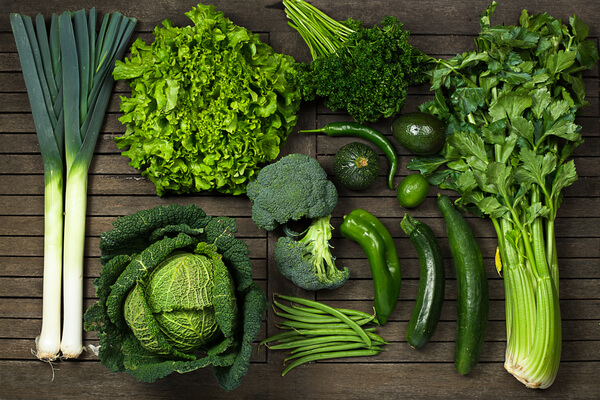
Getting your child to eat leafy greens could be challenging, but you could see a spike in their brain health once you achieve that. Green leafy vegetables like kale, lettuce, and spinach have brain-protecting compounds like folate, carotenoids, flavonoids, and vitamins E and K1. Research also shows that a diet rich in carotenoid foods, like leafy greens, could boost cognitive function in children. Carotenoids like zeaxanthin and lutein are concentrated in leafy greens. After consuming these, they accumulate in a part of your eye known as the retina. Macular pigment optical density (MPOD) measures the quantity of these pigments in the eye. Some studies have also shown that MPOD is clearly linked to cognitive functioning in children.
4. Seafood
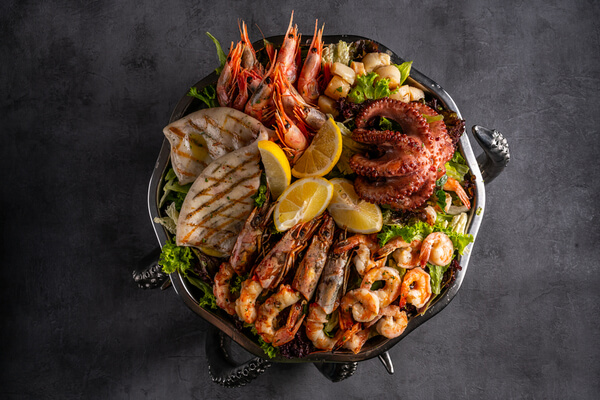
Seafood is an excellent source of several nutrients particularly important for brain function, including zinc, iodine, and omega-3 fats. The body requires iodine to produce thyroid hormones, which are known to play an important role in brain development. Several studies have associated seafood consumption with enhanced cognitive function in children and adolescents. Studies have also linked eating fish with higher IQ scores and improved academic performance in kids. Low blood levels of omega-3 fats could negatively affect the cognitive function of children.
5. Oranges

Orange is a popular citrus fruit and a kid favorite because of its sweet taste. Adding oranges to your child’s diet could visibly improve their overall health, including cognitive health. Oranges are rich in flavonoids, including narirutin and hesperidin. Orange juice is amongst the most consumed sources of flavonoids. Studies have also suggested that consuming flavonoid-rich foods and beverages like oranges and orange juice could help increase nerve activity and blood flow to the brain, thus boosting cognitive function. Oranges are also filled with vitamin C, a nutrient essential to brain health. Vitamin C is necessary for proper neurotransmitter production, brain development, and more.
6. Cocoa

Cocoa and cocoa products, like cacao nibs, are some of the most concentrated food sources of flavonoid antioxidants, including epicatechin and catechin. These compounds contain anti-inflammatory and brain-protective properties. Studies have indicated that they may benefit brain health. Cocoa flavonoids increase the blood flow to the brain, improving visual processing. Research has also shown that they improve performance on certain cognitive tasks in adults. Consumption of cocoa could improve cognitive performance in younger people. Researchers also suggest that cocoa consumption could lead to better cognitive performance in memory and verbal learning tasks. However, more research is needed on the same.
7. Yogurt
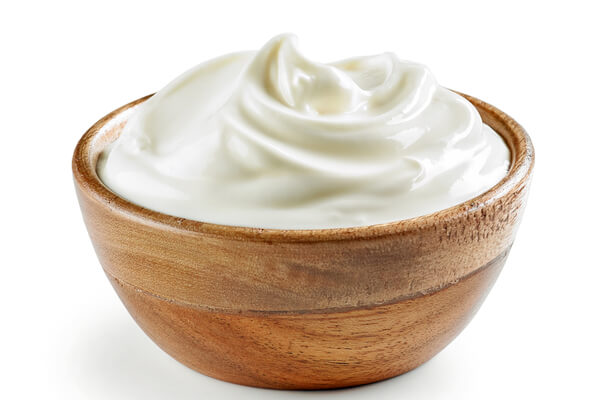
Giving your child unsweetened yogurt for breakfast or a snack is an excellent way to improve their brain health. Dairy products like yogurt are excellent sources of iodine, a nutrient needed for cognitive function and brain development. Studies also show that children who do not consume enough iodine are likely to develop cognitive impairment. Along with being a great source of iodine, yogurt is loaded with different nutrients important for brain development and function, including zinc, protein, selenium, and zinc. You can serve your child with unsweetened yogurt topped with berries and pumpkin seeds.
8. Iron-rich foods
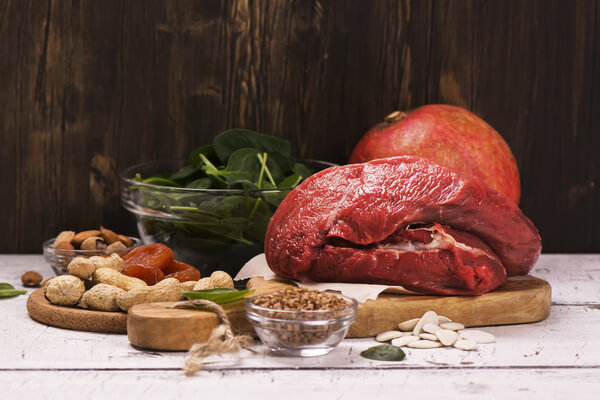
Iron deficiency is common around the world, especially in children. Low iron can negatively affect cognitive development in children. This deficiency has also been linked with attention deficit hyperactivity disorder (ADHD). Children under the age of 7 are considered to be most at risk of developing iron deficiency. The child’s diet should contain iron-rich foods to prevent iron deficiency. These could include spinach, beans, poultry, red meat, and seafood. Also, adding sources of vitamin C to non-heme iron-rich foods could help boost absorption.
9. Nuts and seeds
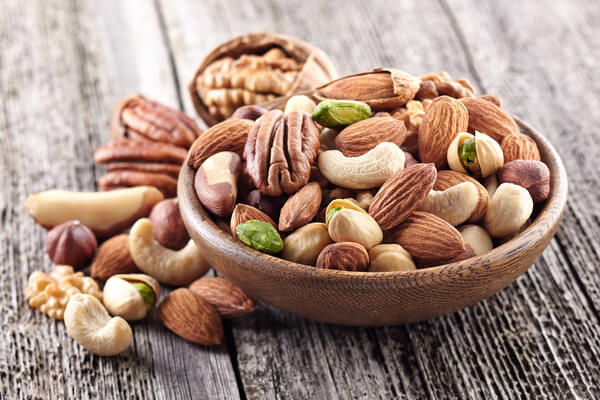
Nuts and seeds are extremely nutritious and contain high levels of nutrients linked to improved cognitive function. These include protein, iron, folate, vitamin E, and zinc. Studies have also shown that eating nuts could help improve the child’s diet quality, boosting their consumption of essential nutrients, like fiber, healthy fats, and protein. Diet quality is associated with better cognitive function and academic performance. Studies have found that nut consumption is also linked with improvements in specific aspects of cognitive performance in college-aged students.
10. Whole Grains

The brain requires a constant supply of glucose, and whole grains provide that in spades. The fiber helps adjust the release of glucose into the body. Whole grains also contain B-vitamins, which nourish a healthy nervous system. You could whip up some healthy whole-wheat recipes for dinner. Whole-grain bread is a must for sandwiches. Switch to whole-grain snacks and meals.
Conclusion
A balanced and healthy diet is significant for your child’s overall health. This includes their brain health. Incorporating the foods listed above into your child’s diet could help provide the nutrients they require for their brain to function, develop and work at its best.

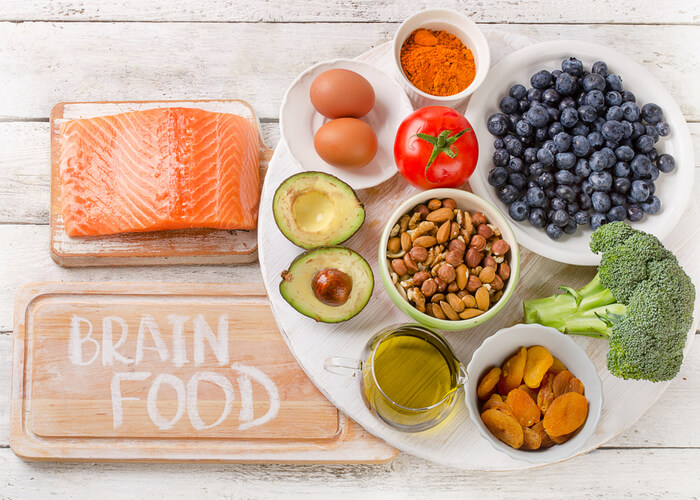






Recent Comments